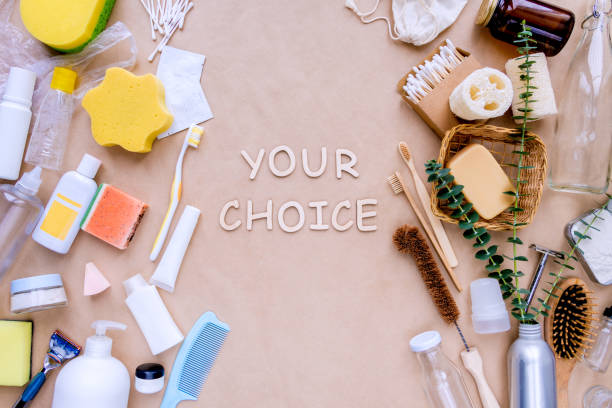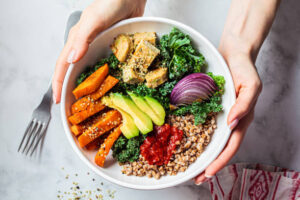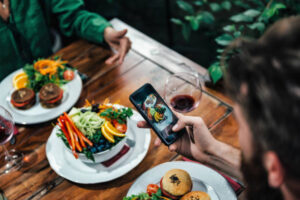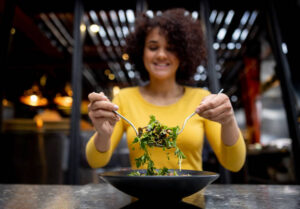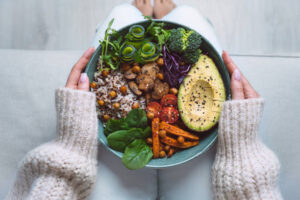“In an average year, we produce 400 million tonnes of plastic waste, with 36% made up of packaging, such as food and beverage containers made from single-use plastics.” (UNEP)
Because of their ease of use and affordability, single-use plastics have become so popular. However, the bitter truth remains that they also contribute significantly to water and land pollution, and global warming! You can ditch single-use plastics by switching to eco-friendly alternatives – and we’re sharing them with you here!
Single-use plastics emit an extreme amount of greenhouse gases at every stage of their lifecycle. Single-use plastics create approximately 750 million tons of carbon dioxide, which is about a 1:5 ratio in terms of production and release.
There are ways to manage plastic pollution, but since just 9% of plastic is recycled, the problem is getting worse. Considering how reliant we are on plastic in this modern world, it may seem impossible to improve this situation. Among the sustainable alternatives to plastic waste reduction, finding alternatives to single-use plastics is the most obvious solution.
Dangers of Single-Use Plastics to the Environment

There is no way to recycle single-use plastics, and they are not biodegradable either. Plastic breaks down into tiny pieces called microplastics instead of organically decomposing. Any plastic produced can take up to 1000 years to decompose, so it is still present on Earth after that time.
In 2050, more plastic will be in the ocean than fish!
Plastics can pollute soil and water during the long decomposition process. In addition to washing up on our beaches, plastic waste is found in the stomachs of birds, which we eat as humans!
In terms of single use plastics, these are the most commonly found in the environment:
- Water bottles
- Plastic bags
- Bottle caps
- Food containers
- Grocery bags
- Plastic covers
- Cigarette butts
- Disposable containers
- Plastic stirrers and straws
Single-Use Plastics vs. Reusable Products: Cost Comparison
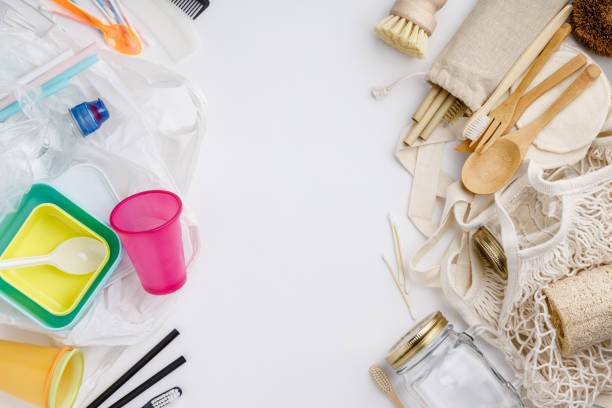
In comparing the costs of single-use versus reusable items, it is helpful to also consider disposal costs. In a world where single-use items predominate, disposable prices are higher due to the amount of waste produced.
In contrast to single-use items, reusable items require a significant amount of energy to manufacture. Organizations should encourage reuse behavior patterns to make purchases environmentally friendly.
It is a good idea to consider plastic alternatives for some everyday single-use plastics if you want to reduce your plastic consumption, whether you are a business or an individual.
20 Eco-Friendly Alternatives to Single-Use Plastics
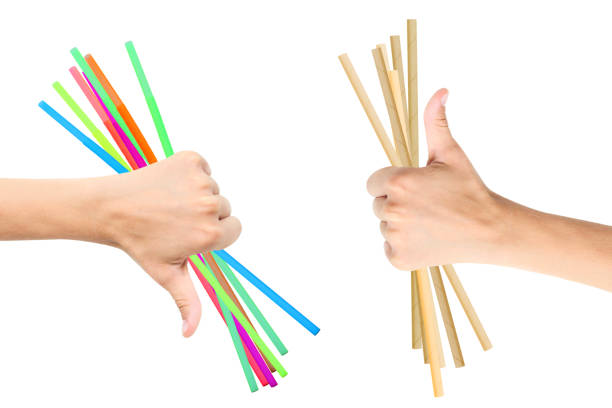
1. Reusable bottles and containers
The largest contributor to plastic waste is plastic water bottles. The number of single-use bottles that end up in landfills and oceans can be drastically reduced if we find sustainable alternatives and switch to reusable water bottles made from stainless steel, glass, or BPA-free plastics.
It is not only durable but also safe to practice plastic-free living and use these reusable options over and over again. Travel mugs and thermoses are perfect for holding our favorite beverages when we’re on the go, and they reduce the use of disposable cups and lids.
2. Beeswax
To ensure plastic-free living, consider using beeswax wraps instead of plastic wrap. A coconut or jojoba oil, tree resin, and beeswax coating are applied to organic cotton to create these eco-friendly food covers. In addition to being waterproof and freezer-safe, these alternatives to plastic wrap can last for up to 12 months when properly cared for.
Unlike plastic, these sustainable alternatives are completely biodegradable and compostable when they are no longer needed. Soy or other vegan-friendly plant waxes can also be used to coat cruelty-free wraps.
3. Reusable bamboo straws
Most single-use plastic waste ends up in waterways, including straws. The thin, flimsy pieces easily break apart, contaminating soil and water in the process. Moreover, these non-biodegradable straws can leach chemicals into your drink, which is a health hazard.
Instead, use stainless steel, silicone, or bamboo straws that can be reused over and over again. As well as being durable and sturdy, these reusable straws also come with a cleaning brush for easy maintenance.
4. Silicone lids/covers
A grey area exists when it comes to silicone’s sustainability. Even though it is technically made from silica, a material that comes from sand, it is generally used in a way that falls between synthetic rubber and synthetic plastic polymers.
A reusable silicone food cover is better than single-use plastic wrap when compared with single-use plastic wrap. In addition to covering cut fruit and vegetables, these stretchy lids can also be used to cover leftover food bowls. You can find these alternatives in health stores as well.
5. Paper bags
Paper packaging is becoming increasingly popular and easy to find as plastic bags are no longer necessary to wrap loaves of bread. Many supermarkets now sell bread in paper bags, and local bakeries have long used them – if your local grocer has not yet gone green, this might be your chance.
Some Victorian schools ban plastic wrap from kids’ lunchboxes, so you might already have lots of paper bags on hand if you have school-age children. These paper bags will serve as suitable sustainable alternatives to single use plastics.
6. Bamboo toothbrushes
If you’re going to ditch the plastic toothbrush, you might as well switch to a bamboo toothbrush. We throw away 30 million toothbrushes each year, which are eventually disposed of in landfills and water bodies, thus harming land and marine creatures.
In addition to being an environmentally friendly alternative to single use plastic, bamboo is also a natural plant that regenerates without requiring much rain and does not contribute to deforestation as it is grass and one of the fastest-growing plants on earth. You can also choose toothbrushes made from recycled plastic if you aren’t on board with bamboo.
Read More: 10 Best Eco-Friendly and Sustainable Zero Waste Shopping Tips
7. Toothpaste tablets
You don’t need to fold up your toothpaste tube to squeeze out every last bit of toothpaste anymore; toothpaste tablets are much more sustainable alternatives to single use plastics. They are made with simple, certified organic ingredients and are plastic-free, zero-waste toothpaste solutions.
Besides being eco-friendly, these toothpaste tablets are also healthier alternatives, since they contain none of the chemicals found in regular toothpastes, such as fillers, preservatives, aluminum, or toxic chemicals. Additionally, they’re great for camping and traveling.
8. Sustainable toilet paper
Stop running out of toilet paper and be kind to the environment. Several companies deliver paper-wrapped toilet paper directly to your doorstep. Unbleached dunny rolls are available in double-length versions made of either 100% recycled material or 100% bamboo material. What’s the best part? Rather than being wrapped in plastic, they come in a box, which ensures plastic waste reduction.
9. Detergent bottles and glass soap
Put an end to single-use plastic bottles of dishwashing liquid. Dishwashing detergent, handwash, and even hand sanitizer are now available in refillable glass bottles at many supermarkets.
You may also subscribe to a service that delivers glass bottle starter kits and refill cans to you directly. Another eco innovator, Single Use Ain’t Sexy, offers foaming hand soap tablets that can be dissolved in water by simply adding water.
10. Boxed washing powder
Having trouble finding detergent for your dishwasher or washing machine? You can save money by switching to boxed washing powders instead of liquid cleaning agents in plastic bottles. Manufacturers will be encouraged to offer more eco-friendly packaging alternatives as a result of such a small change. Consider soapberries (or soap nuts) as an all-natural alternative.
11. Bamboo utensils
A top contributor to the planet’s plastic waste is the plastic cutlery that goes with your yummy takeout meal. Consider getting yourself an organic bamboo cutlery set and storing it in a box or case so you can keep it handy at all times. Take-out cutlery should be washed and stored for use again once you’ve finished your meal. If you order takeout every day, buy two sets to help your journey towards sustainable living.
12. Reusable cotton bags
Many different uses can be made for reusable bags, including storing groceries, transporting books, and bagging groceries. Many people throw away plastic bags when they go grocery shopping. The environment still suffers if you use paper. Reusable bags can reduce your carbon footprint cheaply and easily. You may even be able to save money this way. Various eco friendly stores offer discounts for using these bags.
Each year, Americans use 30 million plastic bags manufactured from 12 million barrels of oil. Around 100,000 animals are killed each year as a result of the bags interfering with marine life. Our actions affect the world around us, so we need to be more mindful of them. Making the switch to reusable bags would benefit the environment and marine life.
13. Reusable tea bags
Is tea your favorite way to start the day? Get yourself a reusable tea bag for loose tea right away! These will prevent the pollution of waterways caused by hundreds of tea bags.
Polyester tea bags have a harmless appearance but are not biodegradable or recyclable. Get a fresh cup of tea anywhere, anytime by using a cotton tea bag made from 100% cotton cheesecloth with your favorite loose-leaf tea. Enjoy your tea sustainably and practically by combining reusable cotton tea bags with a versatile white tea towel.
14. Degradable craft glitter
Most craft glitters contain plastic and aluminum that take hundreds of years to decompose. Since microplastics are so small, they are one of the scarier types of plastic that cannot be recycled.
Sea and ocean life are often harmed by these tiny tricky specks. No worries, though. Don’t be afraid to use glitter in your DIY crafts. Consider colorful sparkles derived from plant cellulose that are non-toxic. Nearly 90% less plastic is used in this product than in its more commonly used counterpart.
15. Menstrual cups
There is a great deal of waste in landfills from disposable sanitary napkins and tampons. As a result, menstrual cups are a more environmentally friendly alternative. It’s okay to feel nervous about switching from sanitary cups to these! You can buy soft, comfy, easily sterilizable silicone cups from a variety of brands to help you through your period with ease.
16. Bamboo drink stirrers
Request earth-friendly bamboo stir sticks at your favorite coffee shop or watering hole if you’re given disposable plastic stirrers. Stirrers made of these materials are thick, renewable, and compostable, and don’t splinter easily like many other wooden stirrers.
17. Linen bread bags
Avoid plastic or paper wrapping when buying fresh bread, sourdough, and baguettes from the baker’s or farmers’ market by bringing linen bread bags. You can keep bread fresh for a longer period by using reusable linen bags instead of disposable plastic bags.
They prevent baked goods from drying out or softening by allowing them to breathe. Due to the variety of shapes and sizes of artisan bread, we recommend buying bread bags with a drawstring that are spacious and secure.
18. Microfibre cloths
Plastic kitchen sponges not only harbor bacteria and germs but also harm the environment. That’s a lot of sponges going into landfills every year if you’re changing them once a week. You can replace plastic sponges with hemp sponges, bamboo or wooden scrubbing brushes, or microfiber cloths if you prefer. Vegan dish blocks are even available.
19. Soap bars
Put an end to single-use shower bottles. A few hair-care brands have taken inspiration from their soapy cousins, offering their formulas in the form of bars. Instead of bottled shampoos and conditioners, shampoo and conditioner bars are a great alternative, since they contain no bottles or tubes. Some environmentally friendly brands package both liquids and cleaning bars in recyclable aluminum bottles.
20. Bamboo plates or recycled paper
Party planners have long used plastic plates for fuss-free celebrations. Using palm leaf and biodegradable bamboo pulp plates is a great option if you can’t find enough glass or ceramic plates for a large party, or if you are looking for a more environmentally friendly option.
Conclusion
We are facing an environmental crisis due to the excessive use of single-use plastics. Despite this, we can create positive change by implementing sustainable alternatives to make reducing plastic waste possible.
Even though replacing the single-use plastic we use so often may seem like a big change, it can be quite simple and contribute to the global trend of sustainability and plastic waste reduction.

